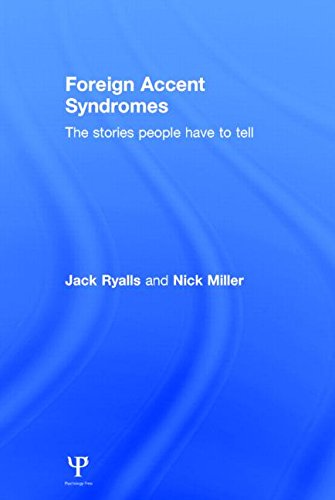

Most ebook files are in PDF format, so you can easily read them using various software such as Foxit Reader or directly on the Google Chrome browser.
Some ebook files are released by publishers in other formats such as .awz, .mobi, .epub, .fb2, etc. You may need to install specific software to read these formats on mobile/PC, such as Calibre.
Please read the tutorial at this link: https://ebookbell.com/faq
We offer FREE conversion to the popular formats you request; however, this may take some time. Therefore, right after payment, please email us, and we will try to provide the service as quickly as possible.
For some exceptional file formats or broken links (if any), please refrain from opening any disputes. Instead, email us first, and we will try to assist within a maximum of 6 hours.
EbookBell Team

4.0
96 reviewsWhat does it feel like to wake up one day speaking with a foreign accent from a country one has never visited?
Why does someone wake up doing this?
This book seeks to portray the broad and diverse experiences of individuals with a rare neurological speech disorder called Foreign Accent Syndrome (FAS). Through a combination of personal testimony and scientific commentary, the book aims to shed unprecedented light on the understanding of FAS by elucidating the complex links between how the brain produces speech, how listeners perceive speech and the role that accent plays in our perception of self and others.
The first part of the book provides a comprehensive introduction to FAS and covers a number of key subject areas, including:
• The definition and phenomenology of FAS
• A history of research on FAS
• The causes and psychosocial consequences of FAS
• A guide to further reading and a glossary of specialized terms.
The chapters in part two provide a unique insight into the condition through personal testimony and accounts from family members. This collection of 28 testimonies from across the world underlines the importance of listening carefully to patients explain their cases, and in their own words. The final section contains a questionnaire for use by clinicians to support case history taking.
The authors are two leading global experts on FAS, and this is the first volume of its kind to provide such a broad and comprehensive examination of this rare and poorly understood condition. It will be of great interest to practising clinicians in neurology, psychiatry, psychology and speech and language therapy/pathology, as well as students in health disciplines relevant to neurorehabilitation, linguists and also to families and caregivers.